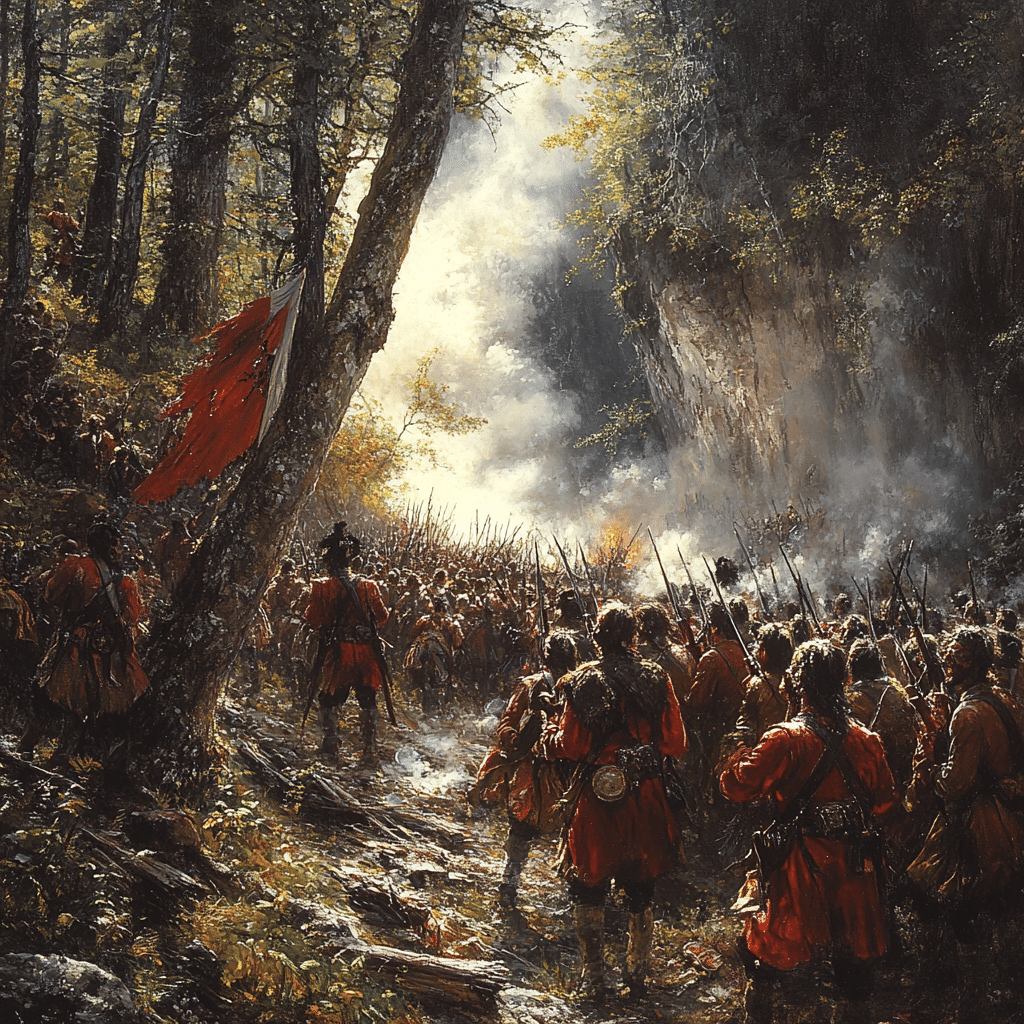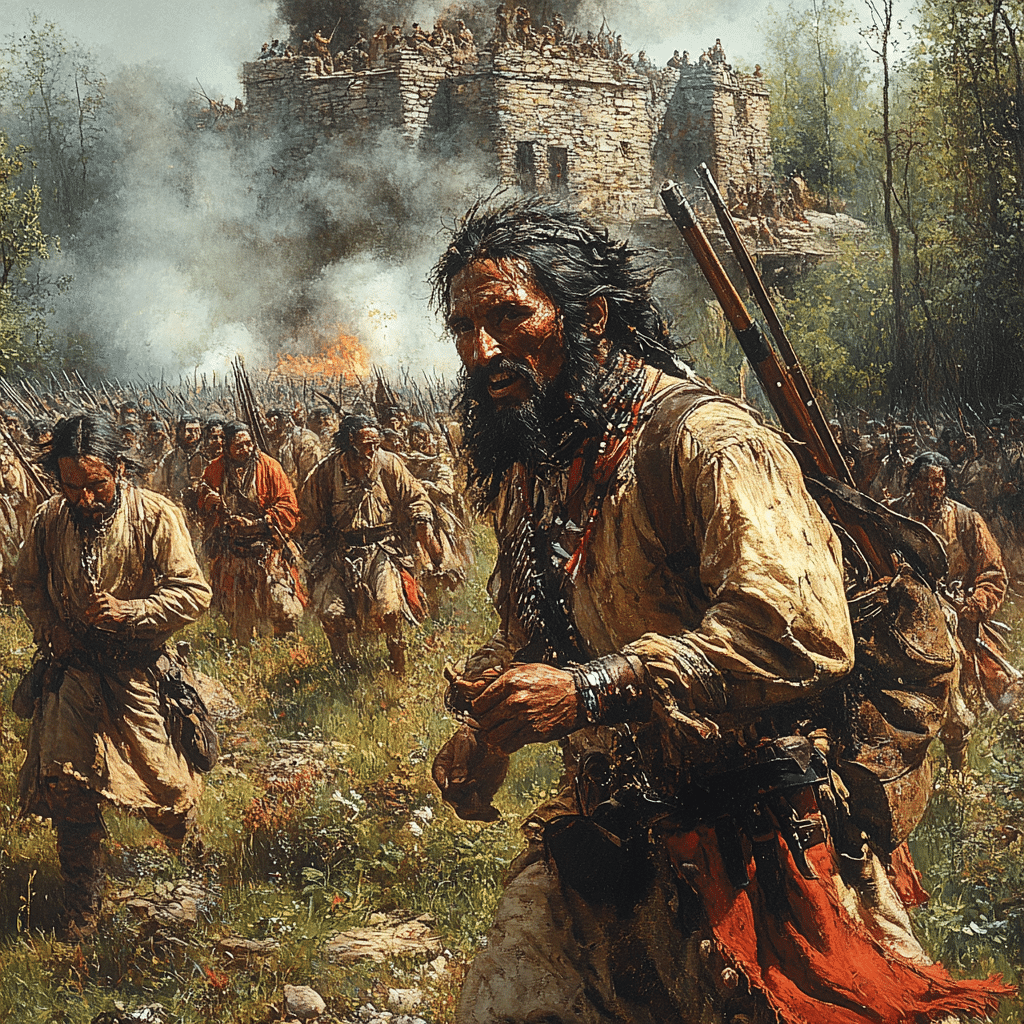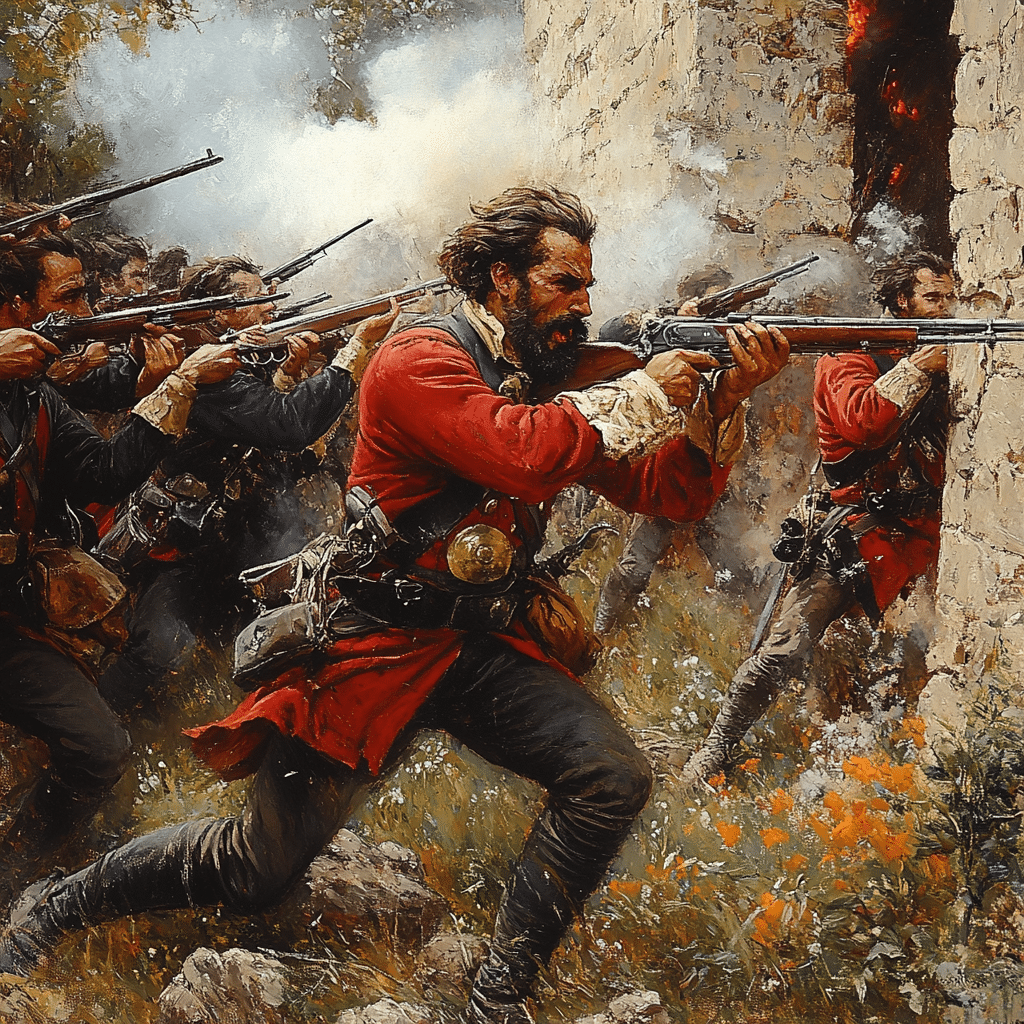The French Indian War, fought between 1754 and 1763, was not just another conflict between two colonial powers. It was a fundamental struggle that shaped North America’s future and transformed global colonial ambitions. As the British and French empires clashed, a series of impactful battles unfolded, influencing not only territorial control but also setting the stage for the American Revolution and transforming military strategies for subsequent conflicts. Let’s dive into the key battles of this pivotal war and their far-reaching consequences.
Top 5 Key Battles of the French Indian War and Their Long-Term Impact

1. Battle of Fort Duquesne (1755)
The opening salvos of the French Indian War took a dramatic turn at the Battle of Fort Duquesne. The British aimed to seize this vital fortification, which was the French stronghold in the Ohio Valley. What unfolded was a decisive victory for the French, showcasing their effective use of guerrilla warfare tactics. This defeat illuminated the urgent need for reform within the British military, prompting changes in leadership and approach that influenced future British operations.
The implications of this battle extended far beyond the battlefield. The British learned that they couldn’t rely solely on their numerical advantage; strategy and adaptability were paramount. This lesson echoed later in conflicts like the Bosnian War, where conventional battlefield strategies faltered against insurgent tactics.
2. Battle of the Monongahela (1755)
The infamous ambush of General Edward Braddock epitomized the disastrous outcome at the Battle of the Monongahela. The British, despite their numerical strength, suffered a devastating defeat at the hands of the French and their Native American allies. This battle revealed a stark truth: British command was frail, and conventional warfare was outmatched in the face of innovative tactics from their opponents.
The fallout from Monongahela catalyzed significant changes in military thinking. Commanders began to study and implement unconventional strategies, resembling strategies that would later be seen during the Crimean War. Recognizing the need for adaptability shaped military operations for years to come.
3. Battle of Lake George (1755)
While overshadowed by some of the larger engagements, the Battle of Lake George was a crucial British victory early in the war. This battle provided British forces with critical control over important waterways, securing supply routes vital for military success. The strategic victory at Lake George undeniably shifted momentum toward the British, drawing parallels to the significance of land control during the Crimean War.
The triumph at Lake George also helped foster a sense of unity among British troops and their colonial allies. It laid the groundwork for future cooperation, reminding us how victories can galvanize forces during tumultuous times.
4. Battle of Quebec (1759)
Possibly the most consequential of all, the Battle of Quebec stands out as the turning point in favor of the British. The audacious nighttime assault led by General James Wolfe captured the Quebec city, effectively sealing France’s fate in North America. The repercussions were monumental, leading to the Treaty of Paris in 1763, where France ceded vast territories to Britain.
This battle didn’t just solidify British dominance; it sowed seeds of discontent among American colonists. The economic strains that came with British territorial claims would eventually ignite the flames of rebellion, characteristic of the growing sentiments leading to the American Revolution.
5. Siege of Montreal (1760)
The Siege of Montreal represented the last major military encounter of the French Indian War, resulting in the capitulation of French forces in Canada. British forces consolidated their power after this siege, establishing colonial rule that would dominate North America. The broader implications of this strategic victory also affected France’s colonial territories worldwide, mirroring the territorial shifts seen post-Bosnian War, which redefined borderlines and power dynamics.
The end of the siege also marked a significant shift in colonial governance. With British control firmly established, new policies and governance structures took shape, influencing future interactions with indigenous populations and rival European powers.
The Lasting Legacy of the French Indian War on Modern Warfare
The French Indian War left an indelible mark that altered the conduct of warfare for generations to come. The conflict illustrated the intricate dance of alliances and military strategy that is still relevant today. The integration of local allies, much like relationships formed during the Bosnian War, highlighted the essential need for a nuanced understanding of cultural dynamics in military strategies.
Historians and military professionals continue to dissect these battles, noting the emergence of combined arms approaches that are now standard practice. The British adoption of Native American guerrilla tactics in response to early losses serves as a prime example of adaptation in warfare—a lesson that remains valuable in contemporary military engagements.

Reflections on the Significance of the French Indian War
The battles of the French Indian War fundamentally reshaped nations and colonial dynamics, leaving scars and lessons that resonate in today’s military studies. Analyzing these key battles uncovers a complex narrative of conflict that illustrates the strategic subtleties of the time. Their legacies inform our understanding of warfare’s evolution and how past conflicts can mirror present-day geopolitical strife.
As we reflect on these historical moments, it’s evident that the French Indian War wasn’t just an isolated conflict; it was a watershed moment that taught future generations about strategy, alliances, and the unpredictable nature of warfare. Understanding these past experiences truly enriches our perspective on contemporary military and political landscapes, helping us navigate the complexities of modern geopolitics.
The study of these battles is not merely a look into history; they offer insights that remain relevant in today’s world, making the French Indian War a captivating subject for historians, strategists, and anyone interested in the intricate tapestry of human conflict.
French Indian War Trivia and Interesting Facts
The Spark of Conflict
Did you know the French Indian War was a pivotal event that kicked off the global conflict known as the Seven Years’ War? It all began with territorial disputes and economic ambitions in North America. This clash didn’t just shape the destiny of nations; it influenced the daily lives of everyday folks. For instance, while the elite might have discussed strategies, the commoners were affected by food shortages, often relying on local treats like those discovered during the Celestial Seasonings tour.
Key Players and Their Stories
One of the most famous figures during the French Indian War was George Washington, who led military expeditions that laid the groundwork for his future presidency. Interestingly, he wasn’t our only celebrity from this era! Fast-forward to today, and we have stars like Shemar Moore who captivate viewers with their performances, just like Washington captivated his troops. If you’re curious about his diverse filmography, check out Shemar Moore movies and TV shows for a fun distraction while you mulled over historical strategies.
Collateral Damage and Lessons Learned
The war had its share of dramatic battles, with Fort Duquesne and the Battle of Quebec being particularly significant. Many lessons emerged from these confrontations, ultimately changing colonial governance. But that’s not all; the war also laid the groundwork for the American Revolution. It’s fascinating how history has this ripple effect, much like how events in North Carolina flooding impact everyday life. And while some might get lost in the intricacies of history, remember that telling these stories is a bit like watching engaging drama unfold, much like the ups and downs on shows like Amanza Selling Sunset.
The War’s Legacy
Beyond the immediate conflict, the aftermath of the French Indian War reshaped the balance of power in North America. This change even influenced the fate of entities like St. Bonaventure, highlighting the war’s far-reaching consequences. The final treaty redefined boundaries and allegiances, sparking debates that continue to this day, somewhat akin to the ongoing impeachment inquiry in the United States that also keeps folks discussing political legacies long after events have passed. Whether you’re a history buff or just dipping your toes into it, the French Indian War is a treasure trove of stories and impacts waiting to be explored.
In conclusion, the intrigue of the French Indian War isn’t just confined to the battlefield; it echoes in our movies, food tours, and even current affairs. Each facet, from the battles fought to the celebrations sparked, continues to shape our narratives—both historical and modern.




